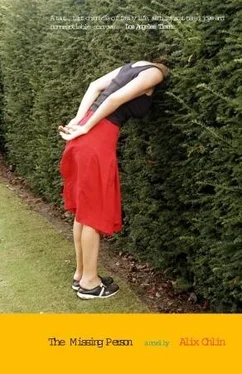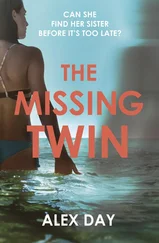“The world is going down the drain,” Angus said, and laughed. But as they talked on and on, Stan flexed his significant arm muscles as if he wanted to pummel some sense into each water delinquent, one at a time. He predicted there was going to be a war over water. He said there ought to be.
Who knows how long we sat there? The conversation was circular; Irina’s songs never ended; the dog whimpered and chased something in his sleep. Then my brother walked into the apartment — panting, flushed, bent beneath the weight of a massive backpack, carrying two six-packs of beer under each of his scrawny arms — and everybody fell quiet.
Without acknowledging anyone, Wylie set the beer down on the floor and slipped out of the backpack, which hit the floor with a clank of metal. Pine needles and other leaflike matter nested in his hair. He was wearing the same camp T-shirt he had on the night before, and smelled bad even from where I sat.
“I brought beer,” he said.
“Where’d you get all that, man?” Berto said.
“Stole it from some frat boys,” Wylie said, grinning, “then ran like hell.”
“Excellent!” Berto stood up to give him a high five, and the tension in the room visibly dissipated. Everybody started drinking, including Irina and me. After a terse hello, Wylie acted as if I weren’t there at all. Every once in a while Angus came over and put his arm around me or touched my shoulder, and I watched for my brother’s reaction, but there wasn’t one.
“Hey, Wylie, what do you think about this list of names I’ve got?” Berto asked, and they immediately plunged into a deep discussion of semantics and philosophical resonance and educational or promotional value. Irina and Stan disappeared and eventually came back with a bag of apples, a round of cheese, and several loaves of bread. The food wasn’t bagged, and I didn’t ask where it had come from.
As I was eating, Angus brought me another beer. “You’re biting your lip,” he said.
“He’s ignoring me.”
“Maybe you make him uncomfortable.”
“I haven’t said anything!”
“Maybe that’s the problem.”
“Why’s he so weird?” I said.
Angus laughed as if this was the funniest thing he’d ever heard.
“You’re not very patient,” he said. “I like that.”
I sighed. “I’m starting to think you’re not very discriminating.”
“Hey,” Wylie called from across the room. I expected him to be looking at me and Angus, but he wasn’t. “It’s time,” he said.
It was already dark. The group fanned out on foot. I saw Wylie and Stan turn the corner, heading south. Angus loped off down the street in the opposite direction without saying anything, and I found myself in step with Irina and Psyche.
“Where are we going?” I asked. In the lit windows of the houses we passed people were on display. A woman laughed drunkenly at a dinner party, the table crowded with candles, guests slumped in their chairs, the chaos of emptied plates. A cat peered angrily into the darkness from the back of a sofa. A young couple sat on a front-porch swing, smoking cigarettes and watching their sprinkler fan back and forth across the lawn. From most homes, falling over the sidewalks was the blue light of television.
“We’ll be there soon,” Irina said. “Stay by me and I will tell you what to do.”
We walked for half an hour through quiet residential streets, seeing no trace of the others. I suspected that Irina’s job was to divert me from whatever task was at hand. From within the sling Psyche gurgled softly to herself, as if forming opinions on the journey. Irina was humming — whether to herself or to her baby I couldn’t tell, or what she might be thinking about, if she thought at all. Maybe she just followed Angus wherever he went, enjoying her television-induced fantasy of the great American desert.
“Who’s Psyche’s father?” I said.
Irina answered with one of her sweet smiles, and I was annoyed. How many smiles and nonanswers could a person take in a single day? The baby gurgled again, louder and with an edge in her voice, as if sensing the approach of a sensitive subject.
“I mean it,” I said. “Who is it?”
“It is nobody who you know.”
“Do you have to be so coy?”
“I don’t know,” she said. She stopped and looked at me with what appeared to be real consternation. “What is ‘coy’?”
“It’s. . like lying.”
Psyche’s gurgle crescendoed to a pissed-off wail. She beat her tiny fist against Irina’s chest and her cheeks flushed and swelled with reproach, tears streaming down her face. People came to their windows to see who was crying. Irina hushed her, swaying her hips and whispering into her child’s tiny ears. Finally Psyche sniffled and buried her head against her mother’s neck.
“Don’t call me a liar,” Irina said into the sudden quiet, hoisting the sling higher on her hips. “It’s unkind.”
“Look, I’m sorry.”
“I said it was nobody you know.”
“And I said I was sorry.”
She then picked up the pace, and I had to work hard to keep up with her. She didn’t look at me at all. We were in a nicer neighborhood now — well-tended gardens, chile ristras and rock lawns, wind chimes above doors, the spicy smoke of piñon wood rising through the air from backyard barbecues. Psyche was asleep.
“This way,” Irina said, her voice low. We were at a service entrance to a golf-course development that wasn’t far, if my geography was right, from the cemetery where my father was buried. She slipped through a gap in the fence — surprisingly agile, I thought, for a woman carrying a baby — and then skulked around the perimeter of a vast expanse dotted with huge houses. I thought I could see other forms moving around, but they might have just been shadows. It was very quiet. The air wafting over acres of thick, green grass smelled cooler and wetter — like a giant swatch of Connecticut now stranded, far from home, in New Mexico. Had I come across this place in the Northeast, it would have seemed pleasant and generically suburban, but now, after hearing all the talk about water, I saw it as decadent and even outrageous, ghastly as a fur coat.
Someone whispered my name in the darkness, and I almost tripped on my brother, who was crouching against the trunk of an elm tree. “Get down,” he hissed, and Irina and I kneeled down beside him. He kept glancing over his shoulder, craning his head to look down a nearby street and even up at the sky. I’d never seen him so twitchy. A car came through the gated entrance, its headlights bearing down as if on purpose on where we huddled together behind the tree. Wylie was pressed up against me, and I could smell the sour stench of his breath and his unwashed hair.
After the car turned the corner and disappeared, Wylie pulled out flashlights from his backpack and handed one to each of us. “You’re looking for glinting metal in the ground. Irina, go over to this side of the fairway. They should be spaced about twenty feet apart, okay?”
“Yes, of course,” she said, rolling the r, her voice dreamy and sweet. He reached again into his backpack and pulled out something wrapped in a towel that turned out to be a wrench. She took it and left immediately, keeping close to the fence.
“You’re ready?” he asked, as if I were a stranger he’d been assigned to buddy with. I nodded. After despairing of catching even a glimpse of him, it was strange to be sitting so close, and I held my breath for fear any movement might startle him. He unwrapped another towel and handed me a wrench. “Come on,” he said.
We jogged across the golf course, playing the flashlights here and there, though my eyes were fixed on his dark ponytail.
Читать дальше












